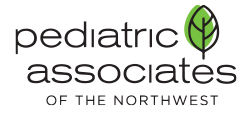April is dedicated to Autism awareness and acceptance. By better understanding autism, we can better support our family members, friends, neighbors, coworkers, and community members who may be on the autism spectrum or love someone who is.
Autism is More Common Than You Think
Autism, also referred to as autism spectrum disorder (ASD), affects 1 in 44 people. It does not discriminate across racial lines, although accurate and early diagnosis is more common for whites than children of color, which is something Autism Acceptance Month hopes to change.
Early diagnosis and intervention are crucial to getting children and their families the education, information, and behavioral support they need. Do you know someone with autism, or is your child friends with someone with ASD? Read Autism Speaks: A Friend’s Guide to Autism.
What is Autism?
Autism spectrum disorder (which we’ll call autism) is a complex and lifelong developmental condition. While there are anatomical/physiological differences in the brains and neural pathways of individuals with autism, we still don’t know the exact cause. There does seem to be a genetic predisposition in some cases but not others. Unfortunately, there is no “cure” for autism, but access to high-quality care and social support networks helps those with autism and their families enjoy full lives.
Autism’s symptoms and severity of behavioral responses fall across a broad spectrum. For example, some children with autism are incredibly verbal and have to learn to curb their wordiness to let others have a chance to speak; others remain largely nonverbal for their entire lives. Some children with autism have high IQs and can memorize and recite stats and data about their passions/obsessions as if they’re reading from an encyclopedia, while others may never learn to read.
Regardless, access to high-quality behavioral support, complex care services, and other resources can be helpful in managing social skills, communication, relationships, and self-regulation.
Signs a Child May Have ASD
Some of the most common signs a child has ASD include:
- Being nonverbal or atypical speech patterns long after most peers engage in conversation.
- Difficulty making eye contact.
- Not responding to their name.
- Struggles to communicate needs.
- A tendency to repeat words back or repeat the same words/phrases over and over (echolalia).
- Difficulty interpreting facial expressions and other nonverbal communication.
- Lack of concern for or disinterest in others’ physical/emotional state.
- Trouble maintaining a back-and-forth conversation (they may be completely disinterested or take over the conversation, only interested in their own topics/interests).
- Intense emotional dysregulation without routines or when routines are disrupted.
- Repetitive motion (tapping, spinning, hand flapping).
- Difficulty making and keeping friends.
- Rigid or highly restricted self-interests.
- Extreme sensitivity or very little sensitivity to outside/external stimuli (may become emotionally dysregulated or have strong emotional outbursts to bright lights, loud noises, itchy clothing, too many people in a room, etc.).
Autism is usually diagnosed during the early childhood stages. This is why pediatricians screen patients, via in-person assessments and conversations with parents and guardians, at 9,18, 24, and 30-months.
Do you suspect your child may have autism spectrum disorder? High-quality screening is essential, and the sooner the better. At Pediatric Associates of the Northwest, our behavioral health psychologists provide autism evaluations. Schedule an appointment to discuss this with your provider. If you are correct, you’ll have immediate access to top-notch care and connection with our area’s premier autism behavioral specialists.





